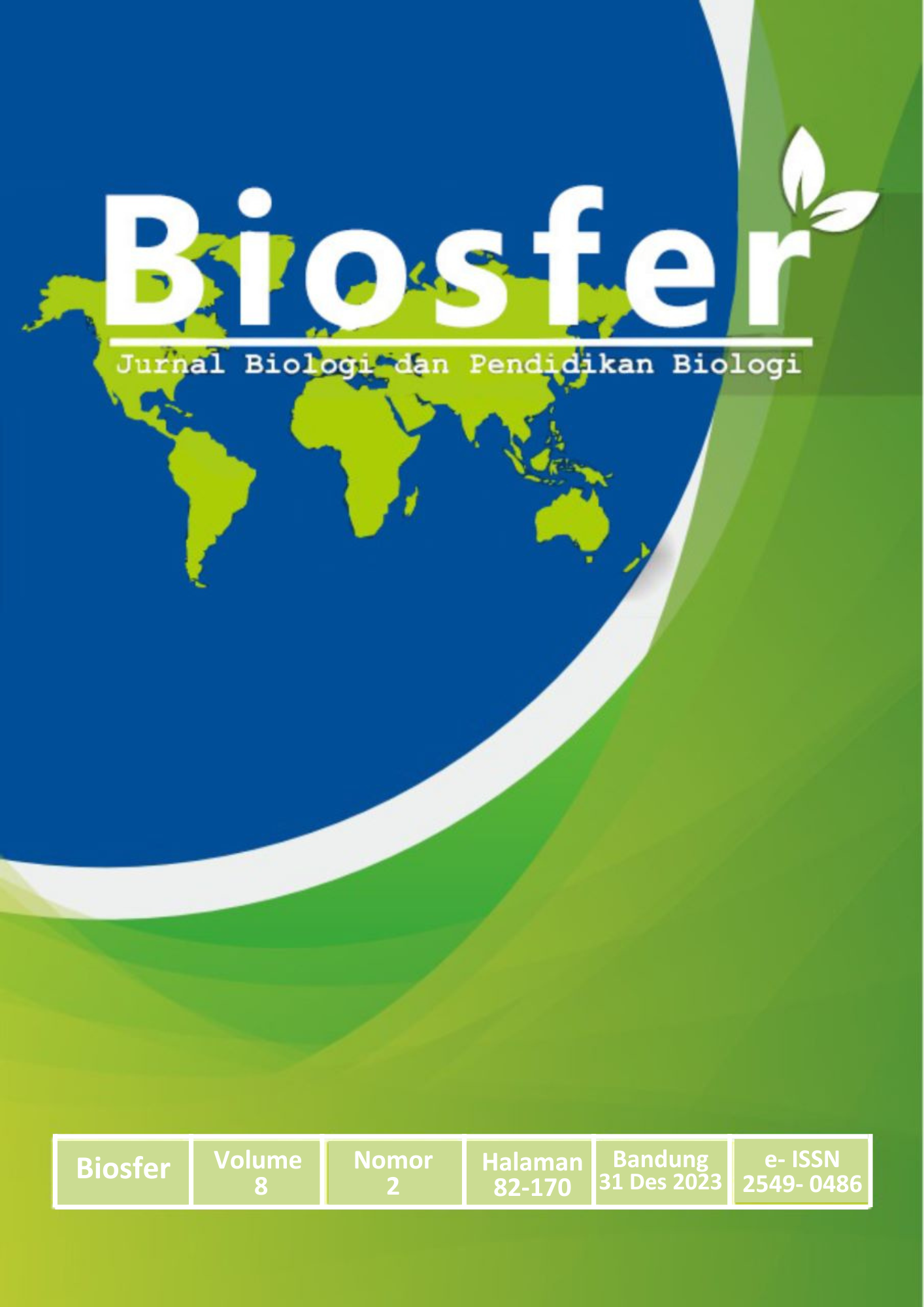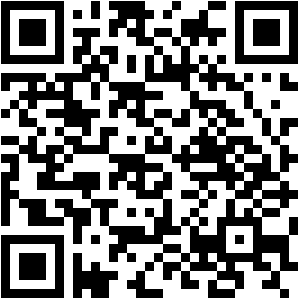Evaluasi PCK (Pedagogical Content Knowledge) Dalam Kesiapan Mahasiswa Pendidikan Biologi Sebagai Calon Tenaga Pendidik
DOI:
https://doi.org/10.23969/biosfer.v8i2.11202Keywords:
Keywords: PCK (Pedagogical Content Knowledge), student readiness and prospective teaching staff.Abstract
Knowledge of Pedagogical Content (PCK) is a concept that emerged because the teaching process not only provides knowledge to students but also gives them the ability to apply the knowledge they acquire. PCK needs to be owned by teaching staff or prospective teaching staff to determine the strategies or techniques used to convey lesson material so that it is more efficient and meaningful. Apart from that, PCK is also one of the standards for preparing teaching staff. The aim of this research is to evaluate the PCK (pedagogical content knowledge) of biology education students regarding their readiness to become teaching staff. This research applies a descriptive approach and is quantitative. A total of nine biology education students were used as research subjects. Samples were taken using purposive sampling. PCK data was obtained through a questionnaire, while data on teaching ability was taken through an assessment sheet. Data were classified based on score interpretation criteria and analysed descriptively with percentages. The results of this research show that PCK is included in the good category with a percentage of 77.72%, and basic teaching abilities are also included in the good category with a percentage of 78.92%. Teachers with good PCK can organise learning well. Because students gain a lot of experience during the learning process, teaching ability is also important for the success of the learning process. The results of this research show that biology education students have good PCK, indicating that they are ready to become educators
Downloads
References
Adryawin, I., Rohana, R., & Nurwahida, N. (2018). Strategi Pustakawan Dalam Meningkatkan Minat Baca Pemustaka Di Dinas Perpustakaan Dan Arsip Kabupaten Lombok Tengah. Nusantara - Journal of Information and Library Studies, 1(2). https://doi.org/10.30999/n-jils.v1i2.376
Akbar, A. (2021). Pentingnya Kompetensi Pedagogik Guru. JPG: Jurnal Pendidikan Guru, 2(1). https://doi.org/10.32832/jpg.v2i1.4099
Ali & Ishak, S. (2019). Eksplorasi Penerapan Pendekatan Scientific Ditinjau dari Pengetahuan Pedagogik Guru. Pepatudzu : Media Pendidikan Dan Sosial Kemasyarakatan, 15(2). https://doi.org/10.35329/fkip.v15i2.471
Behling, F., Förtsch, C., & Neuhaus, B. J. (2022). The Refined Consensus Model of Pedagogical Content Knowledge (PCK): Detecting Filters between the Realms of PCK. Education Sciences, 12(9). https://doi.org/10.3390/educsci12090592
Busch, K. C., Kudumu, M., & Park, S. (2023). Pedagogical Content Knowledge for Informal Science Educators: Development of the ISE-PCK Framework. Research in Science Education, 53(2). https://doi.org/10.1007/s11165-022-10055-9
Bustami, Y., Mirnawati, & Utami, Y. E. (2022). Model Pembelajaran Teams Games Tournament: Studi Meta-Analisis Berpikir Kritis dan Hasil Belajar Kognitif Siswa Sains. BIOSFER : Jurnal Biologi Dan Pendidikan Biologi, 7 No 1. https://doi.org/10.23969/biosfer.v7i1.5454
Chan, K. K. H. (2022). A critical review of studies using the pedagogical content knowledge map approach. International Journal of Science Education, 44(3). https://doi.org/10.1080/09500693.2022.2035011
Ebyatiswara Putra, A., Taufiqur Rohman, M., Linawati, L., & Hidayat, N. (2023). Pengaruh Literasi Digital terhadap Kompetensi Pedagogik Guru. Murhum : Jurnal Pendidikan Anak Usia Dini, 4(1). https://doi.org/10.37985/murhum.v4i1.185
Elsheikh, A. (2023). Explaining inclusive classrooms concept: an overview. Nafath, 7(22). https://doi.org/10.54455/mcn2203
Fitriyah, F., Putro, S. C., & Widiyaningtyas, T. (2018). Hubungan Pengetahuan Pedagogik Mahasiswa dan Keteladanan Guru Saat Kajian Praktik Lapangan dengan Persepsi Berkarir Sebagai Guru Bagi Mahasiswa Prodi S1 PTI UM. Jurnal Pendidikan (Teori Dan Praktik), 3(2). https://doi.org/10.26740/jp.v3n2.p74-79
Gao, S., Damico, N., & Gelfuso, A. (2021). Mapping and reflecting on integration of the components of pedagogical content knowledge (PCK) for teaching natural selection: A case study of an experienced middle-school science teacher. Teaching and Teacher Education, 107. https://doi.org/10.1016/j.tate.2021.103473
Großschedl, J., Welter, V., & Harms, U. (2019). A new instrument for measuring pre-service biology teachers’ pedagogical content knowledge: The PCK-IBI. Journal of Research in Science Teaching, 56(4). https://doi.org/10.1002/tea.21482
Haka, N. B., & Rosida, L. (2020). Analisis Kemampuan Berpikir Kritis Kelas IV B Tema Kayanya Negeriku Melalui Strategi Pembelajaran Jeopardy Review. EDUCARE: Journal of Primary Education, 1(3). https://doi.org/10.35719/educare.v1i3.28
Haryono, L. F. Y., Parta, I. N., & Muhsetyo, G. (2019). Pengetahuan Konten Pedagogik Guru Matematika Pemula pada Program Linie. Jurnal Pendidikan: Teori, Penelitian, Dan Pengembangan, 4(8). https://doi.org/10.17977/jptpp.v4i8.12683
Idris, I. S., Bahri, A., & Putriana, D. (2018). Pemberdayaan Keterampilan Pemecahan Masalah Dalam Pembelajaran Biologi Melalui Pbl. Prosiding Seminar Nasional Pendidikan Biologi.
Juan, W. (2022). Resource Cache Sharing System of Education Information Center Network Based on Internet of Things. Mobile Information Systems, 2022. https://doi.org/10.1155/2022/4947586
Junaid, R., & Baharuddin, M. R. (2020). Peningkatan Kompetensi Pedagogik Guru melalui PKM Lesson Study. To Maega : Jurnal Pengabdian Masyarakat, 3(2). https://doi.org/10.35914/tomaega.v3i2.413
Kulgemeyer, C., Borowski, A., Buschhüter, D., Enkrott, P., Kempin, M., Reinhold, P., Riese, J., Schecker, H., Schröder, J., & Vogelsang, C. (2020). Professional knowledge affects action-related skills: The development of preservice physics teachers’ explaining skills during a field experience. Journal of Research in Science Teaching, 57(10). https://doi.org/10.1002/tea.21632
Magnusson, J., Kullberg, A., Innabi, H., Knutsson, L., Von Otter, A. M., & Landström, J. (2023). Prospective teachers’ opportunities to develop PCK from participation in learning study. Educational Action Research, 31(3). https://doi.org/10.1080/09650792.2021.1997779
Melo, L., Cañada-Cañada, F., González-Gómez, D., & Jeong, J. S. (2020). Exploring pedagogical content knowledge (Pck) of physics teachers in a colombian secondary school. Education Sciences, 10(12). https://doi.org/10.3390/educsci10120362
Mientus, L., Hume, A., Wulff, P., Meiners, A., & Borowski, A. (2022). Modelling STEM Teachers’ Pedagogical Content Knowledge in the Framework of the Refined Consensus Model: A Systematic Literature Review. In Education Sciences (Vol. 12, Issue 6). https://doi.org/10.3390/educsci12060385
Moh’d, S. S., Uwamahoro, J., Joachim, N., & Orodho, J. A. (2021). Assessing the Level of Secondary Mathematics Teachers’ Pedagogical Content Knowledge. Eurasia Journal of Mathematics, Science and Technology Education, 17(6). https://doi.org/10.29333/ejmste/10883
Muhyidin, K., Ekawati, R., & Sofro, A. (2022). Analisis Keyakinan Tentang Matematika Dan Pengetahuan Konten Pedagogik Matematika Calon Guru Matematika. Jurnal Ilmiah Soulmath : Jurnal Edukasi Pendidikan Matematika, 10(1). https://doi.org/10.25139/smj.v10i1.3939
Nilsson, P., & Karlsson, G. (2019). Capturing student teachers’ pedagogical content knowledge (PCK) using CoRes and digital technology. International Journal of Science Education, 41(4). https://doi.org/10.1080/09500693.2018.1551642
Perdani, B. U. M., & Andayani, E. S. (2022). Pengaruh Kemampuan Technological Pedagogical Content Knowledge (TPACK) Terhadap Kesiapan Menjadi Guru. Jurnal Pendidikan Akuntansi Indonesia, 19(2). https://doi.org/10.21831/jpai.v19i2.46021
Pertiwi, D. P., Kumala, F. N., & Iswahyudi, D. (2021). Analisis Kemampuan Teknologi Guru SD. Rainstek Jurnal Terapan Sains Dan Teknologi, 3(3). https://doi.org/10.21067/jtst.v3i3.6038
Poti, J. G., Dudu, W. T., & Sebatana, M. J. (2022). A South African beginner natural sciences teacher’s articulated PCK-in-practice with respect to electric circuits: A case study. Eurasia Journal of Mathematics, Science and Technology Education, 18(10). https://doi.org/10.29333/ejmste/12426
Schiering, D., Sorge, S., Keller, M. M., & Neumann, K. (2023). A proficiency model for pre-service physics teachers’ pedagogical content knowledge (PCK)—What constitutes high-level PCK? Journal of Research in Science Teaching, 60(1). https://doi.org/10.1002/tea.21793
Sothayapetch, P., Lavonen, J., & Juuti, K. (2021). Primary school teachers’ interviews regarding pedagogical content knowledge (PCK) and general pedagogical knowledge (GPK). European Journal of Science and Mathematics Education, 1(2). https://doi.org/10.30935/scimath/9390
Susanto, R., Sofyan, H., Rozali, Y. A., Nisa, M. A., Umri, C. A., Nurlinda, B. D., Oktafiani, O., & Lestari, T. H. (2020). Pemberdayaan Kompetensi Pedagogik Berbasis Kemampuan Reflektif Untuk Peningkatan Kualitas Interaksi Pembelajaran di SDN Duri Kepa 03. International Journal of Community Service Learning, 4(2). https://doi.org/10.23887/ijcsl.v4i2.25657
Uno, H. B. (2017). Assessment Pembelajaran. In Bumi Aksara.
Vázquez-Bernal, B., Mellado, V., & Jiménez-Pérez, R. (2022). The Long Road to Shared PCK: a Science Teacher’s Personal Journey. Research in Science Education, 52(6). https://doi.org/10.1007/s11165-021-10028-4
Vergara Rodríguez, D., Mezquita Mezquita, J. M., & Gómez Vallecillo, A. I. (2019). Metodología Innovadora basada en la Gamificación Educativa: Evaluación Tipo Test con la Herramienta QUIZIZZ. Profesorado, Revista de Currículum y Formación Del Profesorado, 23(3). https://doi.org/10.30827/profesorado.v23i3.11232

Downloads
Published
Issue
Section
License
Copyright (c) 2023 Biosfer : Jurnal Biologi dan Pendidikan Biologi

This work is licensed under a Creative Commons Attribution 4.0 International License.
























